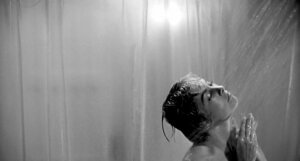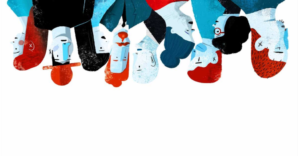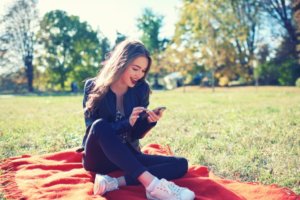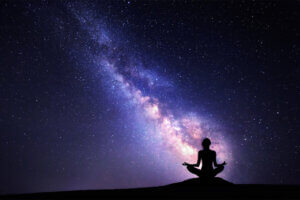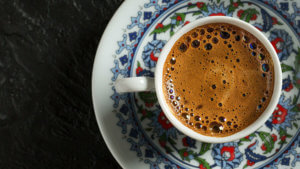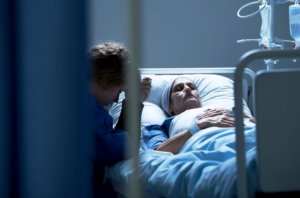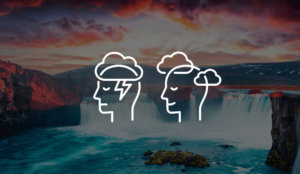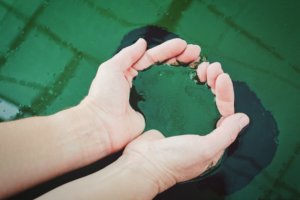Outside editor Erin Berger talks about overcoming her years of sleep problems with new experiences. We hear from her:
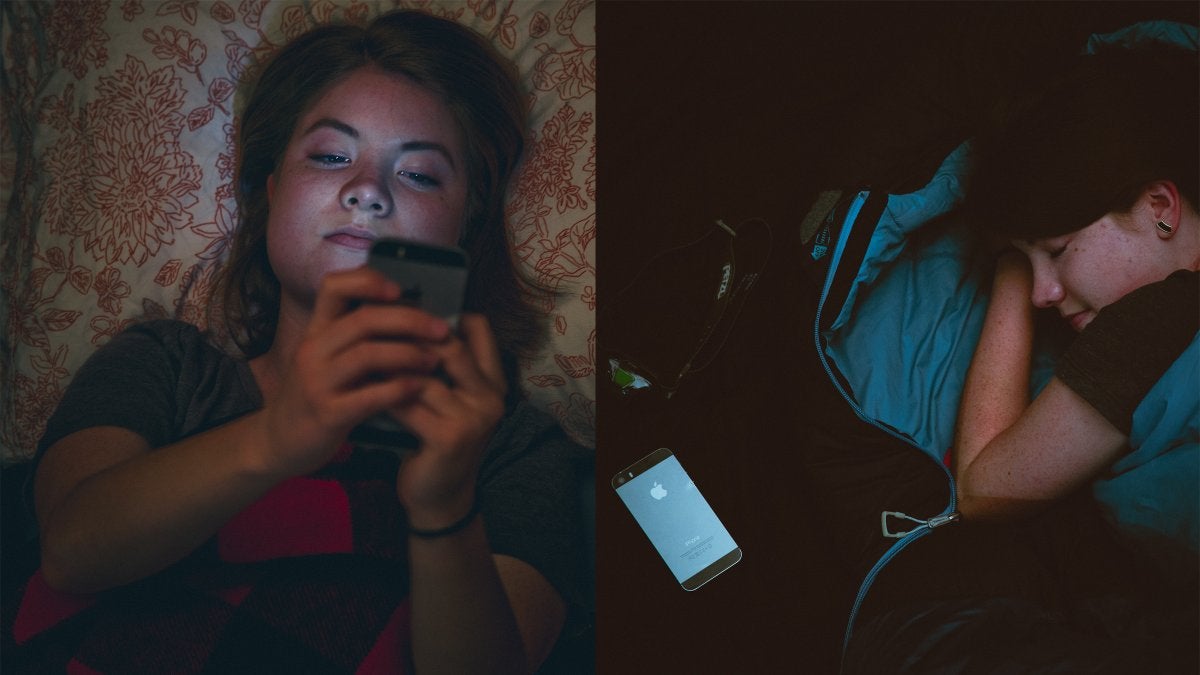
As a desperate coffee consumer, I spent a week camping in the woods trying to learn how to regulate my biological clock.
I live by openly defying the rules I have to follow to get a good night’s sleep. Rule number one: Try to be less exposed to the blue light emitted from phones and computers some time before bed. (Okay, but when else will I catch up on what’s going on during the day?) Rule number two: Sleep in a completely dark bedroom. (I didn’t take this into account when purchasing my tulle curtains that even let the moonlight pass through.) Rule number three: Drink coffee in the afternoon. (How so!?)
More than ten years ago, around the time I started middle school, my terrible sleeping habits were just beginning to take shape. Then, I had been pressing the snooze button an average of four times every morning when my alarm went off. When I started college, I made several attempts to have a reasonable sleep pattern. I tried to go to bed at 10 pm but often found myself staring at the ceiling for hours. At the same time, I began to lose my belief that anyone could fall asleep in 10-20 minutes.
Maybe that’s why this headline caught my eye: “Want to fix your sleep schedule? Go camping this weekend”. Current Biology research, cited in the article published in Popular Science in February 2017, focuses on the most mysterious indicator of sleep habits: the circadian rhythm.
Simply put, when you have the right circadian rhythm, your body should want to sleep in the dark and wake up when there is light. Just two days spent in nature can change a person’s body clock by up to 2.5 hours. Researchers discovered that a week spent outdoors changed some subjects’ clocks by as much as four hours. The reason for this regulation is that constant exposure to natural light (and most importantly, darkness) promotes the release of melatonin, the hormone that regulates the circadian rhythm. “Once your melatonin starts to rise, that says it’s the biological night for us,” says Kenneth Wright, one of the study’s lead researchers and also a professor in the University of Colorado’s Department of Integrative Physiology.
Perhaps all this was a sign: I could reset my deeply broken internal clock. Of course, sleeping outside for seven days—even if I still had to go to work and didn’t spend all my waking hours in nature—could have my melatonin spiked at the right times. I wouldn’t lose anything even if it couldn’t, the weather was just getting warmer, and I really missed camping. There was only one rule. I had to sleep in nature every day.
The experience began in early April. A friend took me to a car camp about 20 minutes from my house and picked a spot for my two-person tent. We sat by the campfire for several hours. After our campfire went out, we got cold, and we slipped into our sleeping bags. I thought it must have been around 23:00, but it was just 21:15. We laughed at this and fell asleep after about 15 minutes. During my sleep, I only woke up when my alarm went off, and I only pressed the snooze button twice.
Both of these victories were probably due to my lack of adjustment to the new environment, and my focus shifted to sleeping and waking. I kept my hopes low for the second night as I got used to the camping life a little more, and this time I would camp alone. I thought I could stay awake thinking about something, but no, I fell asleep within five minutes this time. I woke up once from my deep sleep when I heard deer circling my tent in the middle of the night, and in the morning, I pressed the snooze button only once. After my third restful night, my anxiety about my sleep pattern was considerably reduced. There was a surprising increase in my sleep quality. If anyone ever asked me how the experiment went, I had my answer ready; “I feel my circadian rhythm has changed.”
On the morning of the fourth night, I opened my sleeping bag and felt like a fresh new person. While I was drinking my morning coffee, I thought that I could give up my morning coffee now. The urge to drink a cup at 2 o’clock in the afternoon also disappeared. I felt really cheerful all day. I was slowly becoming the functional person I had always dreamed of. During the day, I was always waiting for “I wonder when I want to take a nap.” That was the weirdest part: I never felt sleepy until my head hit the pillow. It was as if my body knew how to be fully awake until I lay down, and as soon as my head hit the pillow it would say: “Hah! I’m going to sleep now!”
I know what I’m experiencing doesn’t really reflect how circadian rhythms work. Still, according to University of Colorado researcher Wright, my circadian rhythm definitely has something to do with what I’m doing. By reducing your exposure to blue light and increasing morning sunlight, you can increase the amount of melatonin you need at night. “When melatonin rises, it tells your body to get ready for bedtime in a few hours,” Wright says. “If your melatonin level is up when it’s time for you to go to bed, then things are going well.”
The camping experience was far from scientific, but I feel like I reaped some real benefits just by letting the sunrise and sunset determine my waking times. For example, I had to sleep when it got dark, and this helped me fall asleep sooner. It was also hard to ignore the 360-degree sunlight and the birdsong each morning. At the end of 1 week, I felt constantly tired every time it was time for bed, and when it was time to start the day, I always felt more awake. Also, coffee no longer felt like a necessity to wake myself up in the morning. (I’m still drinking, of course – I didn’t have a spell that would break me out of coffee, after all.)
Why did this work?
I learned a lot about getting a good night’s sleep during the week I camped, and the pre-sleep habits you hear often do work. But the open-air had other factors as well. For example, the temperature dropped from 20 degrees to around 5-6 degrees every night after sunset, and therefore the cold I felt signaled to my body that sleep was imminent.
The poor internet at the campsite also meant that I didn’t check my phone before bed, which meant there was no blue light disrupting my melatonin levels before bed. I also slept in a mummy-style sleeping bag under a giant duvet. The weight of the duvet kept me from moving, and I guess that was a plus for me to fall asleep more easily. (Studies showed that sleeping under a heavy blanket made it easier for people with insomnia to fall asleep.)
What should your camp be like?
To restore your circadian rhythm, Wright suggests spending an entire weekend camping, rather than a half-weekly camp. “We can use camp to start an earlier sleep schedule immediately, then we have to maintain our sleep habits to keep us there,” she says. You may not live near a forest to camp in, but you can camp anywhere permitted by law and where you will be exposed to the sunset and sunrise. Make sure you don’t get too much exposure to streetlights or other ambient lighting sources, and leave your phone at home for greater efficiency.
And while it’s not scientifically supported, I’ve come to the conclusion that camping on any given night before school should be a commonplace option, even as prevalent as going to the gym or the hairdresser.
How do I see similar effects if I can’t go camping?
You can make small changes every day to experience some of the benefits that camping has on your sleep cycle. “If you start your day with more exposure to natural sunlight, that alone will have a huge impact,” Wright says. She also suggests exercising right after waking up. “This, in addition to turning off the lights in your home and dimming all your electronics, can help you get to bed earlier.”
For example, I also made some changes for my nights in bed to help replicate my outdoor bedroom. I bought a blackout curtain for one of my windows that will completely block the light from outside. (I also moved my veil to my other window, which faces the street and has relatively little lighting at night, so that morning light comes in.) Every night I put my phone in airplane mode and read a book instead of looking at the phone. Even though I don’t sleep in my mummy-type sleeping bag, I also keep my room as cold as possible. I try not to worry about exactly when I fell asleep. E-mail checks I made in the middle of the night; afternoon coffee; hitting the snooze button for the fourth time in the morning.

